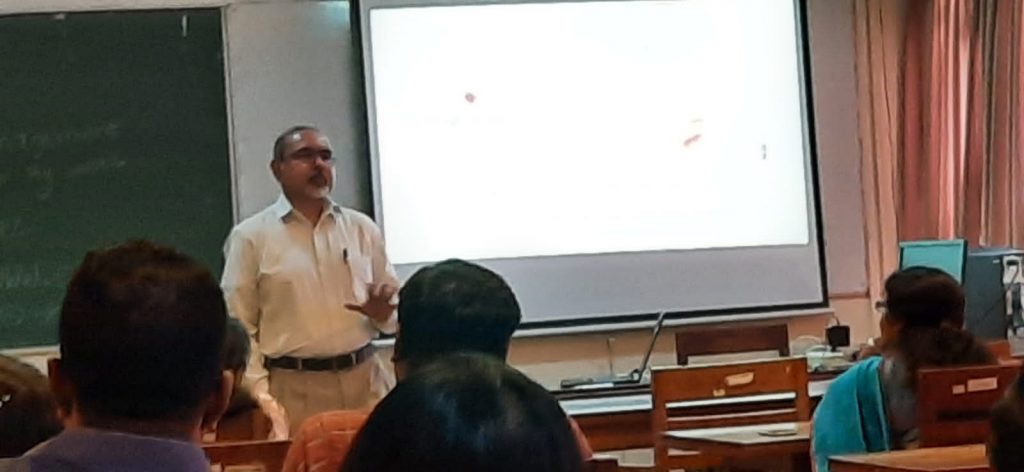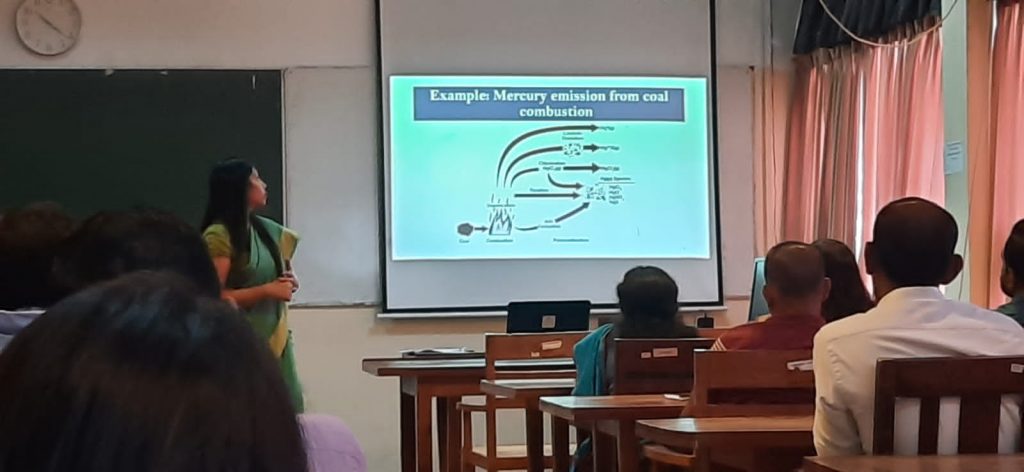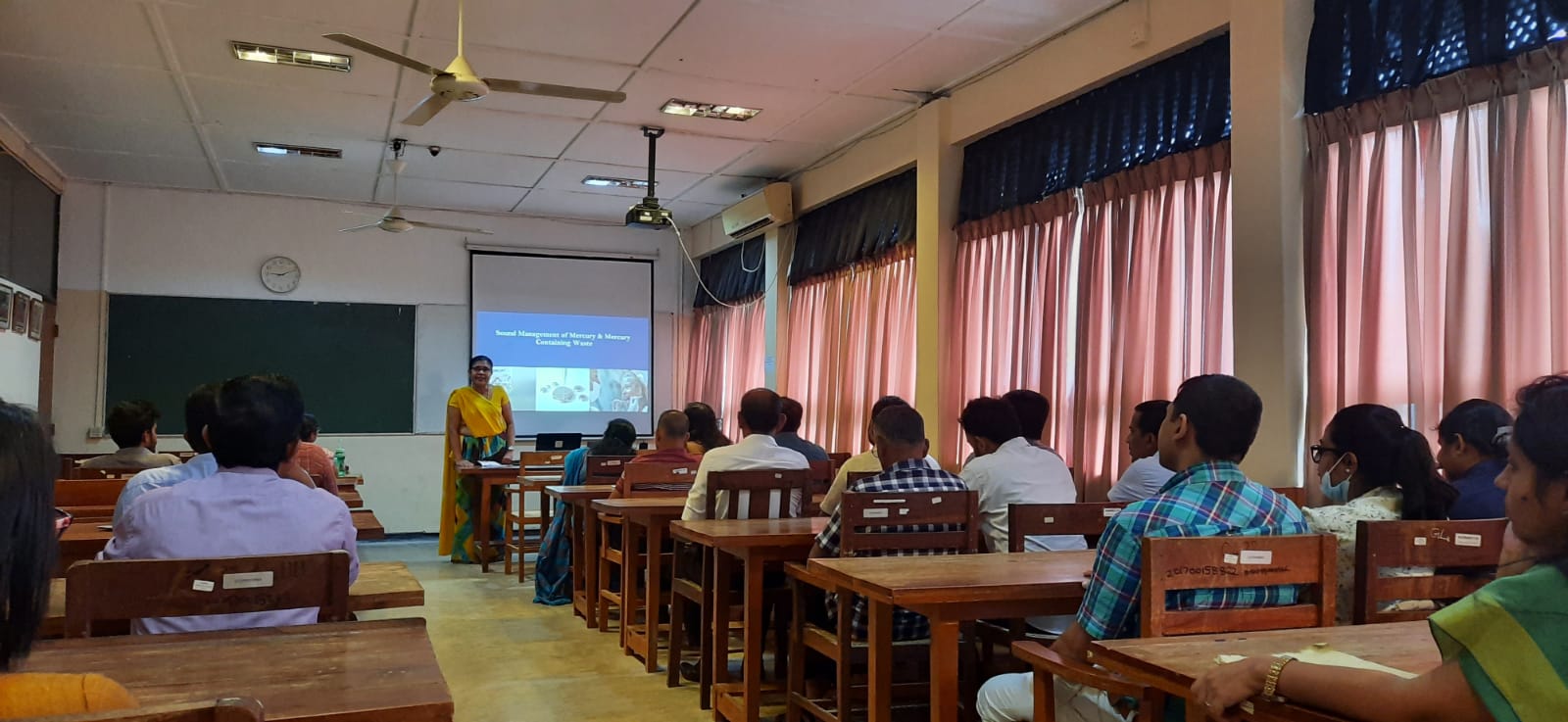Mercury, a potent environmental pollutant, requires careful management to prevent adverse effects on both human health and the ecosystem. The Department of Chemistry at the University of Sri Jayewardenepura in collaboration with the National Cleaner Production Center, Sri Lanka hosted a vital training session on the “Sound Management of Mercury and Mercury-containing Waste” on the 15th of August 2023 from 8:30 a.m. to 1:30 p.m. aiming to equip technical officers and lab attendants with the knowledge and skills necessary to handle Mercury responsibly. The training was graced by the esteemed presence of Prof. Champa Jayaweera, the Head of the Department of Chemistry, University of Sri Jayewardenepura. Her presence underscored the significance of the event and emphasized the department’s commitment to promoting responsible chemical management practices. The training attracted a diverse group of participants, primarily technical officers and laboratory attendants from the Department of Chemistry and technical officers from other departments including Zoology, Botany, Physics, Statistics, and Food Science.


The training program was thoughtfully designed with four comprehensive modules,
- Introduction to Chemical Management
- Sources, Types, Properties of Mercury, and Adverse Health Effects of Mercury
- Mercury-Free Alternatives to Mercury-Contained Products
- Mercury Spill Management
Ms. Terancy Samarawickrama, Assistant Director at the Environment Management Department, Board of Investment of Sri Lanka, led the first two modules and her experience in environmental management brought valuable insights into the safe handling of Mercury. Modules 3 and 4 were conducted by Prof. Jagath Premachandra from the Department of Chemical and Process Engineering at the University of Moratuwa and his profound knowledge in chemical engineering and Mercury management added depth to the training. The participants gained a comprehensive understanding of Mercury and Mercury-containing waste management, thanks to the well-structured modules and the expertise of the presenters. The training proved to be immensely beneficial for all participants. Not only did it equip them with the necessary skills and knowledge to handle Mercury safely, but it also fostered a sense of responsibility towards environmental sustainability. With Mercury being a hazardous substance, proper management is not just a professional obligation but a societal responsibility.


